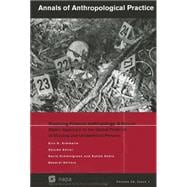The problem of missing, endangered, and unidentified persons is increasingly approached through a human rights model with successful outcomes. Contexts vary from international investigations into war crimes, genocide, and extrajudicial killings to American “cold cases.” In all these examples, anthropologists play critical roles such as searching for clandestine graves, crime scene recovery, human identification, interviewing witnesses, repatriation, public education, and testifying in court. To successfully identify unknown persons, key questions about human variation and biology are essential. For example, can ancestry be reliably estimated? What are the ramifications of estimating the biological profile of an unknown person without appropriate references samples? Does the variation occur because of inherent genetic variation or environmental conditions? Given the potential variation that exists, what are the implications of using standard calibrations across populations in criminal trials? Moreover, forensic anthropologists today work in diverse cultural and legal environments. How do the roles of forensic anthropologists differ in diverse legal settings? The current practice of forensic anthropology ranges from field to lab to courtroom and has evolved as a discipline from what it was almost a century ago. The purpose of this volume is to explore the ways in which forensic anthropology intersects with current human right and humanitarian justice initiatives. The 11 papers in this series include a range of emerging new tools and approaches to human identification and the investigation of long-term missing and unidentified persons.








